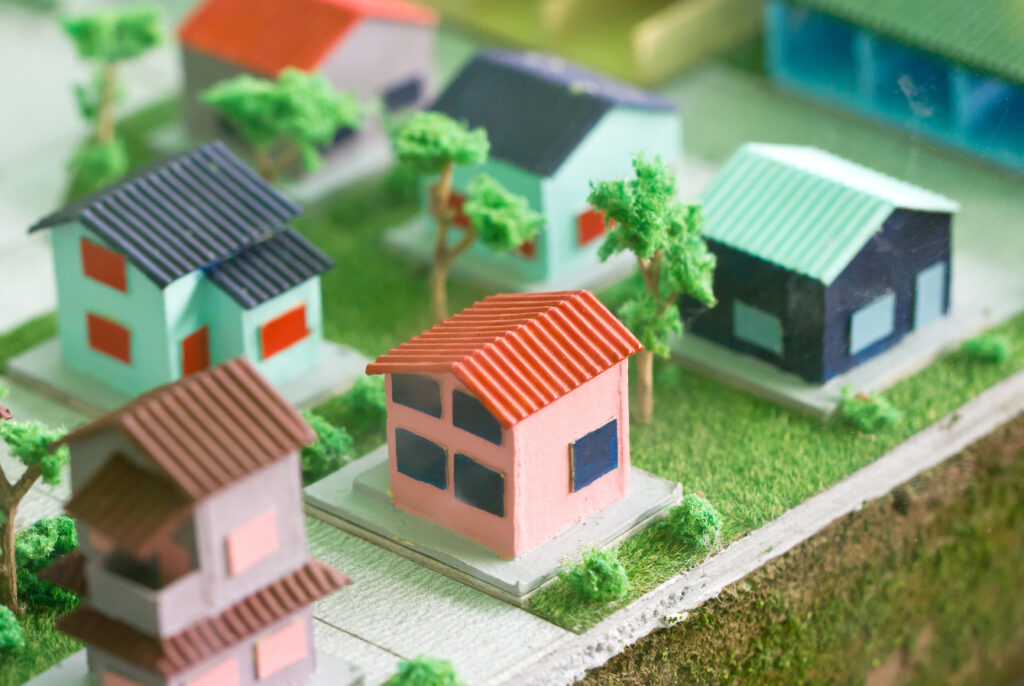19 Mar Pros and Cons of Community Living: Tiny House Communities and Modular Home Parks
Parking has remained one of the frontrunners in detourants of whether or not to go tiny or buy modular homes. For many homebuyers, it causes more stress than any other part of the process as they battle building and zoning legalities, and limitations on land and fight against irritated neighbors. However, as the tiny house movement excels and modular homes power forward as a solution to affordable housing, more and more states and municipalities are not only accepting THOWS and park models, but they are creating ways to park them legally.
So, which way is best for you and your specific living arrangement? Do your research and begin to ask yourself some questions as you proceed.
- Do I prefer solitude or being surrounded by friends and neighbors?
- Is feeling like I am a part of something bigger than myself a value of mine?
- Do I enjoy sharing my excess of ‘things’ and my gifts and talents to benefit others?
These and many other questions should be explored as you compile your specific pros and cons list.
Living Communally

Worth the Benefits
Many currently existing tiny home and modular house communities exist with a common goal of living somewhat, if not completely, sustainably on or off grid. They usually are designed around a shared space which may include things like a community fire pit, garage storage of outdoor gear, the use of bikes or skis, a pool, community garden, etc.
These amenities can be incredibly rewarding and fulfilling as well as offer the additional security of living in a small close-knit community of like-minded people.
Comes with Drawbacks
It is important to understand that, with all great things, there are drawbacks. When so many extra perks come with a community property, they will also come with something similar to HOA fees or the understanding and agreement that each tiny house dweller will contribute time and effort toward each entity. That may mean you give up your Saturday mornings to tend the community garden or clean the pool in exchange for using those facilities.
Additionally, you cannot benefit from the freedom and privacy so many are chasing with tiny house or modular living if you are on a communal property. Since THOWS, park models, and modulars that are on-grid must be hooked up to at least water and power, if not also sewage or septic, they will likely be placed in close proximity to one another. For many, this could be a major con to the idea of living in a community environment.
Parking Privately
Major Pros
Anyone who has been born from the Baby Boomers through the early years of Gen X have likely been raised to believe that they are to chase the American Dream. Even if that may look like a tiny house instead of the average 2500 square feet surrounded by a white picket fence, we are still conditioned to think we need to own property. So being able to purchase however small or large parcel of land with your tiny can feel more secure to some.
Additionally, the privacy afforded by having your own land can be a major pro for most looking for the freedom that tiny living affords.
Running Risks
Regardless of whether you own your own property or not, government and municipalities still rule. Therefore, we cannot be so blind to think that because we own our land that they cannot ask us to move our THOW or park model modular if it is not parked legally. This means you need to research the local legalities in your areas prior to making the choice to buy.
You also want to be aware of hook-ups available for your tiny on your land. Do you need septic or sewage? Are you planning to bag up your compostable waste? Can you have trash pick up or is there a landfill where you can legally dump? Are you visible from a major road where more traffic may make your parking place high-risk to be reported?
All of these and others are pros and cons to consider when you are looking for where might best suit you for parking your dream small home. Be sure to do your research, make your priority list of wants and needs, and not leave anything up to chance or surprise because having to move your home on short notice can cause a lot of headaches that no one wants.

Sorry, the comment form is closed at this time.